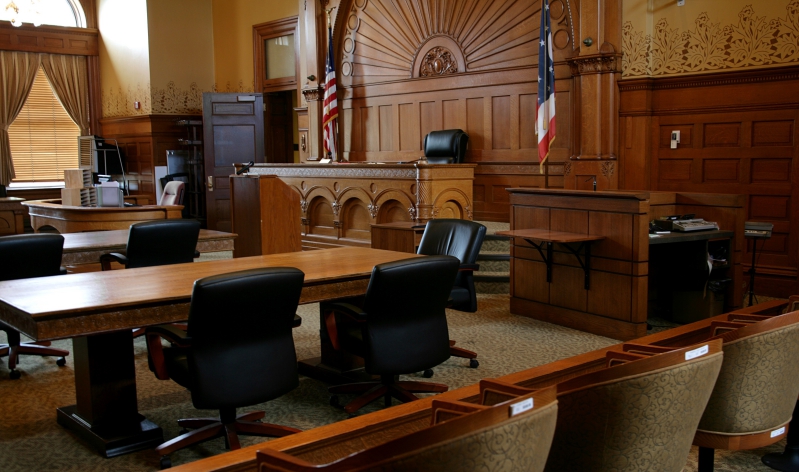
Experts explore regulatory possibilities for the legal profession.
Approximately 1.33 million lawyers hold active licenses in the United States.
The U.S. Bureau of Labor Statistics projects that employment in the legal profession will continue to grow at a steady pace in the years leading up to 2030. Also, recent market data show that the number of open attorney positions at law firms has increased by 150 percent since the onset of the pandemic.
Because of the ever-changing and ever-growing nature of the legal profession, many legal experts question the continuing efficacy of the entrenched regulatory model.
The United States lacks a nationwide structure for regulating lawyers. Rather, in conjunction with state bar associations, state supreme courts regulate attorneys who are licensed to practice. Typically, individuals must possess a law degree and consequently pass a state-level bar exam to obtain a license to practice law.
Ethical principles play a key part in the construction of lawyer regulations. The American Bar Association (ABA), a voluntary bar association that represents lawyers and law students across the United States, adopted the Model Rules of Professional Conduct in 1983. Since then, many states have incorporated these rules into their own legal codes to govern lawyer ethics within their respective jurisdictions.
Critics of the self-regulatory model for lawyers argue that the scheme contributes to problems with individuals’ access to legal services because it conflates the practice of law with the delivery of legal work. According to advocates of access to justice initiatives, the wide swath of people who are not served by the legal system indicates a systemic issue in the regulation of the profession. Due to the unmet need for legal professionals in underserved communities, access to justice champions support loosening regulations to serve more individuals.
On the other side of the argument, advocates of restricting the practice of law to authorized individuals fear that the involvement of unauthorized persons will “interfere with the proper administration of justice.” Many states, however, permit nonlawyers with a license to dole out legal advice.
In this week’s Saturday Seminar, experts identify and address potential areas of improvement in the regulation of individuals in the legal profession.
- To address discriminatory and harmful conduct in the legal field, a more targeted disciplinary approach is necessary in the United States, Susan Saab Fortney of Texas A&M University School of Law advocates in an article in the Georgetown Journal of Legal Ethics. Fortney emphasizes that other countries, including Australia and Canada, use a “proactive management-based program” to regulate the legal profession, which directly addresses lawyer misconduct and provides harmed persons with alternative remedial avenues. Fortney calls the current corrective model in the U.S. “reactive,” and recommends that U.S. regulators mimic the regulatory models found abroad to strengthen public trust in legal professionals.
- In many cases, when lawyers misbehave, all the complainant wants is an apology. In a recent article published in The Georgetown Journal of Legal Ethics, Leslie Levin of the University of Connecticut School of Law and Jennifer K. Robbennolt of the University of Illinois College of Law examine how the lawyer discipline system might benefit from incorporation of more apologies. Levin and Robbennolt explain that lawyer apologies are appropriate at specific moments in the lawyer disciplinary process. For example, lawyer apologies can help repair client relationships before a complaint is even filed. Attorney Consumer Assistance Programs could educate lawyers on the power of apology. Levin and Robbennolt argue that apologies are especially powerful in a regulatory system that does not provide monetary compensation and can help repair relationships and improve confidence in the legal profession.
- Despite over 40 years of American Bar Association recommendations, most states have failed to adopt adequate client protection measures against overreaching lawyers. Leslie Levin explores this issue in a recent article published in the American University Law Review. Most states do not mandate protections such as written fee agreements to protect clients from lawyers who overcharge, steal clients’ money, or fail to return unearned fees. Levin argues that state legislatures, not just courts, should intervene and regulate client protection measures.
- Innovation raises new ethical issues, so Renee Knake Jefferson of the University of Houston Law Center proposes formalizing a duty to innovate ethically in an article in the Notre Dame Journal of Law, Ethics & Public Policy. Jefferson explains that this duty follows from lawyers’ responsibility to provide competent representation by assessing the consequences of relevant technology and innovations. In addition, she suggests that this duty could require lawyers to engage in ethical innovation by improving their legal skills and facilitating greater access to justice. Jefferson contends that this duty will protect individual rights to autonomy, identity, privacy, and security robustly in the digital age.
- Mediation functions as an alternative method of dispute resolution that employs a more flexible approach to deciding conflicts. In an article on mediation regulation, Nadja Alexander of Singapore Management University explains that the flexibility and cultural agility inherent to mediation procedures demand a dynamic regulatory structure. Alexander proposes using a contextual lens to craft a “regulatory-ethical ecosystem in which mediation can thrive.” Alexander describes this regulatory scheme as a collaborative one in which multiple players—such as mediation experts, referral agencies, and regulatory entities—work together to create value-based regulations for the field of alternate dispute resolution.
- Due to the judiciary’s silence on sexual misconduct, media revelations and legislative responses have become “de facto regulators,” according to Renee Knake Jefferson in an article in the Fordham Law Review. Jefferson explains that the power dynamics of working for judges impose pressure on employees to remain silent and endure harassment. Jefferson urges state and federal courts to implement a comprehensive policy against sexual harassment, a confidential reporting system of sexual misconduct, and an annual, anonymous survey of law clerks about sexual harassment. She also insists that policies shift the burden of handling sexual harassment complaints from victims to the institution. To hold the judiciary accountable, she recommends that performance evaluations for judges include information on how they prevent and handle sexual harassment.
The Saturday Seminar is a weekly feature that aims to put into written form the kind of content that would be conveyed in a live seminar involving regulatory experts. Each week, The Regulatory Review publishes a brief overview of a selected regulatory topic and then distills recent research and scholarly writing on that topic.



